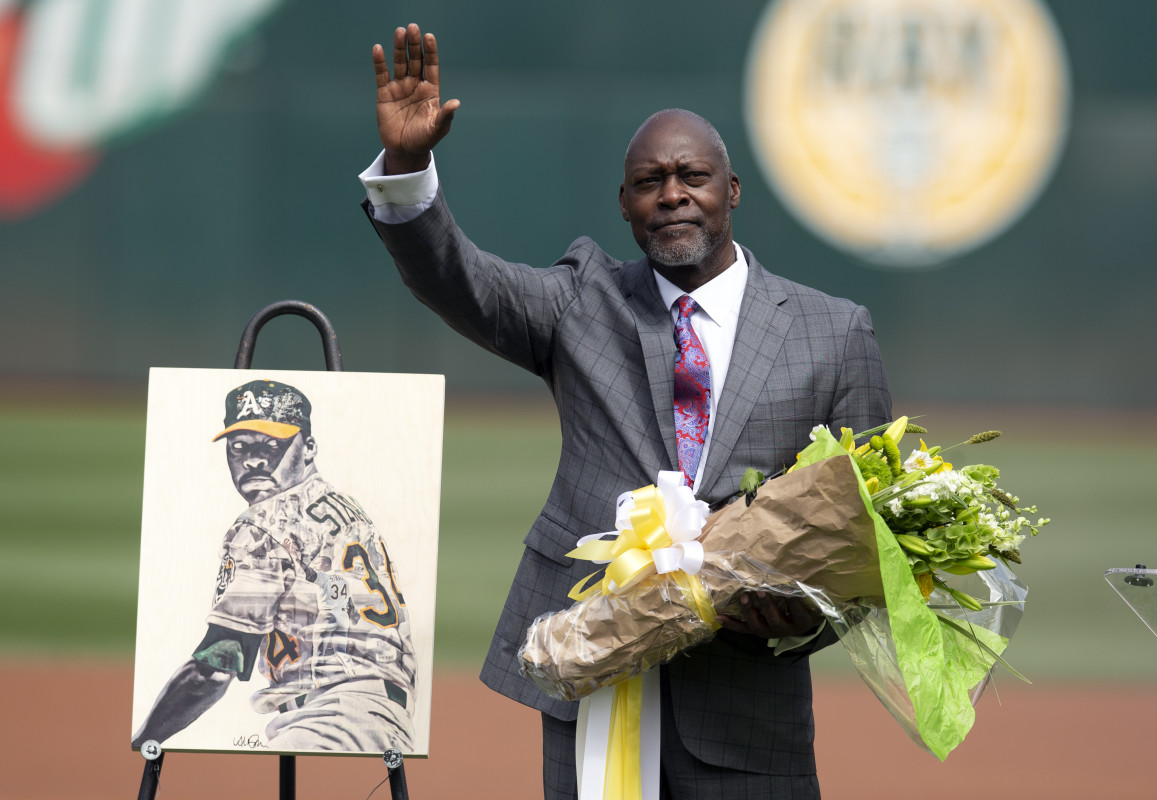
Highlights:
- Stewart is the rare pitcher who appeared in the World Series for both the Los Angeles Dodgers (1981) and the Toronto Blue Jays (1993), and he still doesn’t “buy the super team” narrative in October.
- Stewart’s October bottom line: the team that plays clean, rides one hot pitcher and one hot bat, and handles the layoff best usually wins—no matter who looks bigger on paper.
If you’re already penciling in an easy World Series for the Los Angeles Dodgers, Dave Stewart has a warning.
He’s the pitcher who worked a World Series for both the Los Angeles Dodgers and the Toronto Blue Jays. More importantly, the Oakland A's great has lived on both sides of a World Series mood swings.
His rule hasn’t changed. He shared it Wednesday morning on MLB Network's MLB Now.
“I don’t buy into the super team… it only takes one or two guys… a pitcher that gets hot, [and] hitters that get hot. That’s the team that’s going to win this thing.”
Why He Went North
Stewart didn’t leave Oakland lightly. “I wanted to be an A for the rest of my life… I grew up in Oakland,” he said. Free agency pulled him into a real choice: “It was going to come down to the Yankees or the Blue Jays.” Toronto won on relationships and fit. “Pat Gillick… said, ‘If we don’t bring Jimmy Key back, you’re going to be the first call.’… Paul Molitor had already signed… Joe Carter was a person that I had always wanted to play with… and you had Jack Morris in that rotation.”
The sell wasn’t just the roster; it was the manager.
“Cito Gaston… is the ultimate player manager,” Stewart said. And the clubhouse ran like a traveling masterclass. “Paul and… Oly and Joe and Robbie [would] sit at the front of the dugout and watch pitchers in their warm-ups and just really focus… little things that they could pick up… These guys were the ultimate teammates… it was a learning experience every game.”
He still stumps for the city that adopted him. “Toronto is… one of the best kept secrets… Beautiful people, great restaurants, clean city… and now they’re a great baseball town.”
Stewart's Red Flag
Stewart’s Oakland years are the caution sign for anybody throwing around “wipe them out” talk. “Quite frankly… 88, 89 and 90, I believe we were favorites in all of them,” he said. The lesson: the favorites don’t always cash. “In ’88 it was [Orel] Hershiser… [and] a guy on one leg hits a walk-off. In 1990 we came up against the Nasty Boys… and there was a young man named Hatcher there that was hot… seemed like he came up in the right situation at the right time.” Result: “They beat us four games to none.”

The 2025 Read That Actually Matters
Strip the posters and the odds. “I throw all of the super team stuff out of the window when we get to the World Series,” Stewart said. What wins is boring and repeatable: “Pitching and defense… the team that makes the fewest mistakes… executes the best on the mound.” He also flagged one modern wrinkle that always sneaks up on favorites: “You got to be cautious right now. The Dodgers have been off for a long time… Position players hate long periods of time away from live at-bats… I think that may play a factor.”
Translation for the next 48 hours: if one side gets a starter on a heater, a role player cashing traffic, and clean 27-out baseball—twice before the series flips—the “on paper” winner doesn’t matter.
Why His Voice Carries
The resume backs the warning. Stewart worked 133 postseason innings across 18 starts with a 2.84 ERA, and stacked classic duels (Roger Clemens, Jack Morris, Bruce Hurst) without blinking. He broke in with the Dodgers as a reliever on the 1981 title team, carried ace weight in three straight World Series with the Oakland Athletics, and started Games 2 and 6 for the Blue Jays in 1993 before Joe Carter ended it. That’s a man who knows how quickly October flips.
What To Watch In Games 1–2
Stewart will be watching carefully. These are some of the things he will be looking for.
One starter stacking six clean with minimal walks.
A non-headline bat refusing to roll over with a runner at second. No mistakes on defense.
That’s how a favorite turns into a coin flip—or how an underdog steals the bracket.
Where This Goes
Call it the Stewart Rule. Pick a favorite if you must, but watch the first pitcher who looks unbothered and the first bat that keeps finding the right spot. That’s the side that usually walks away with the ring, no matter what the odds say.
More must-reads:
- World Series Game 4 takeaways: Blue Jays' big inning evens series, Shane Bieber outduels Shohei Ohtani
- World Series takeaways: Shohei Ohtani’s historic night sets stage for Freddie Freeman’s 18th-inning walk-off
- The 'World Series walk-off home runs' quiz
Breaking News
Trending News
Customize Your Newsletter
 +
+
Get the latest news and rumors, customized to your favorite sports and teams. Emailed daily. Always free!








